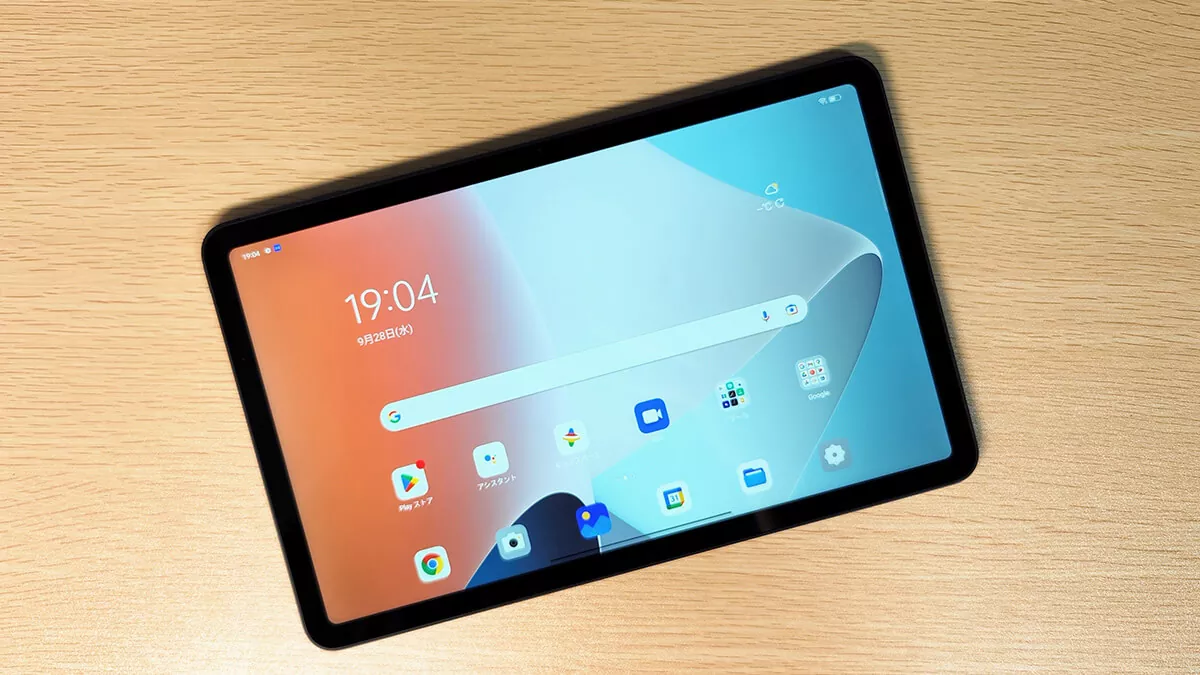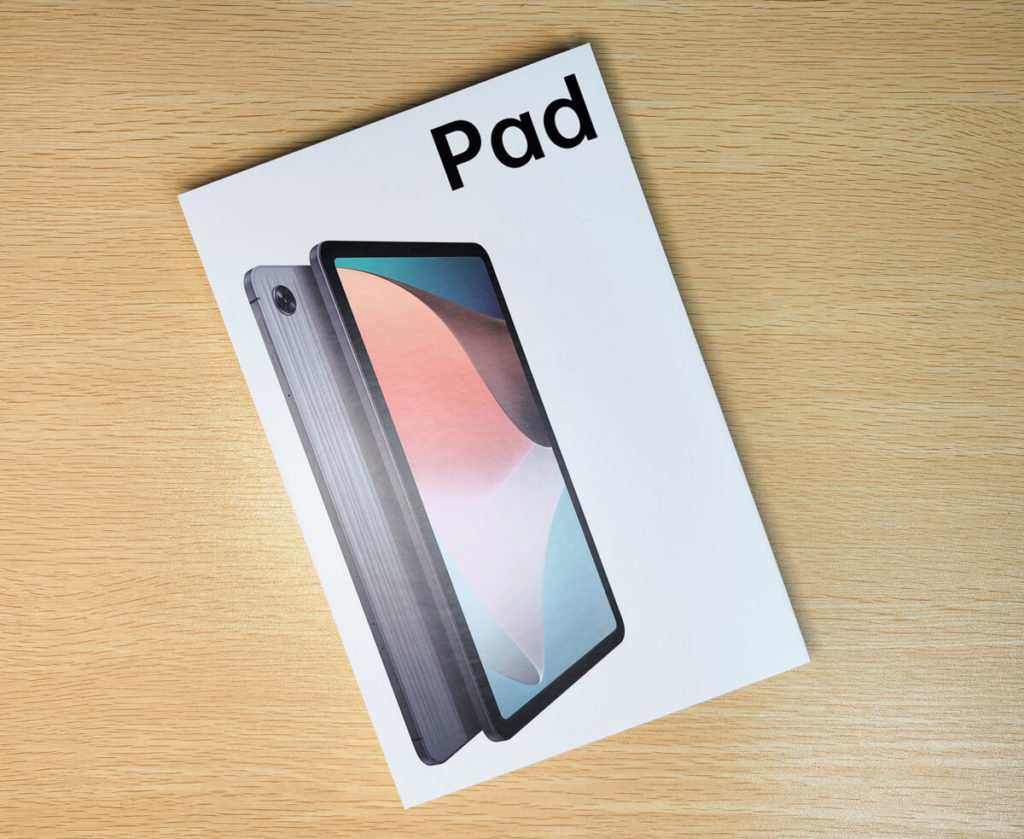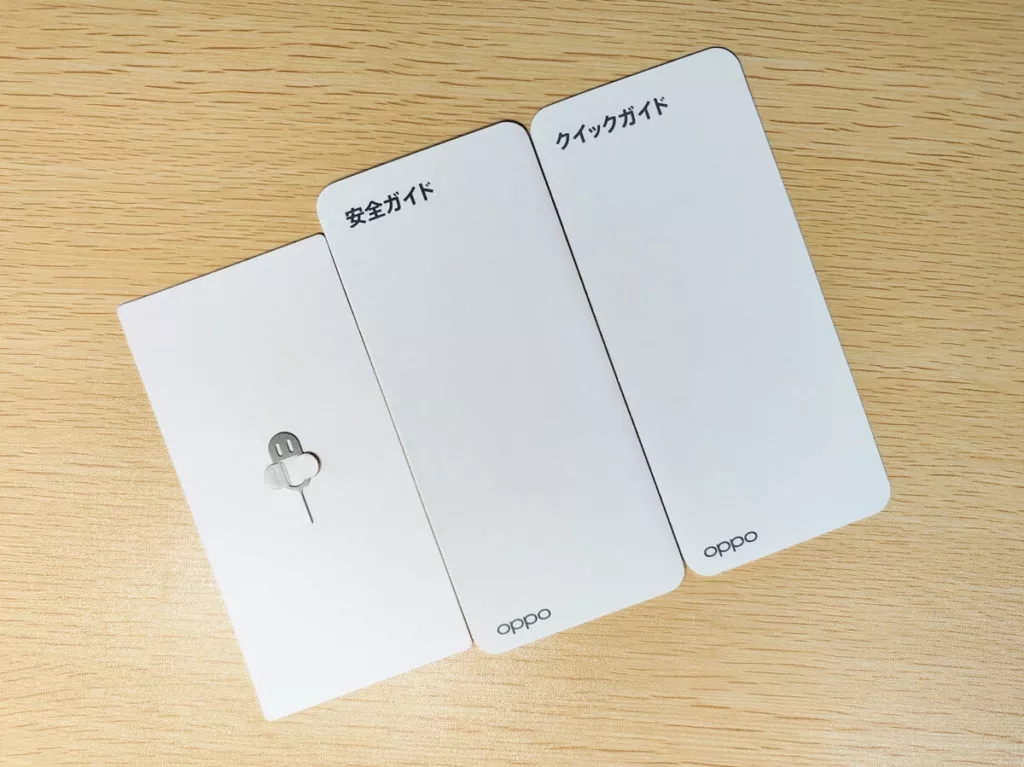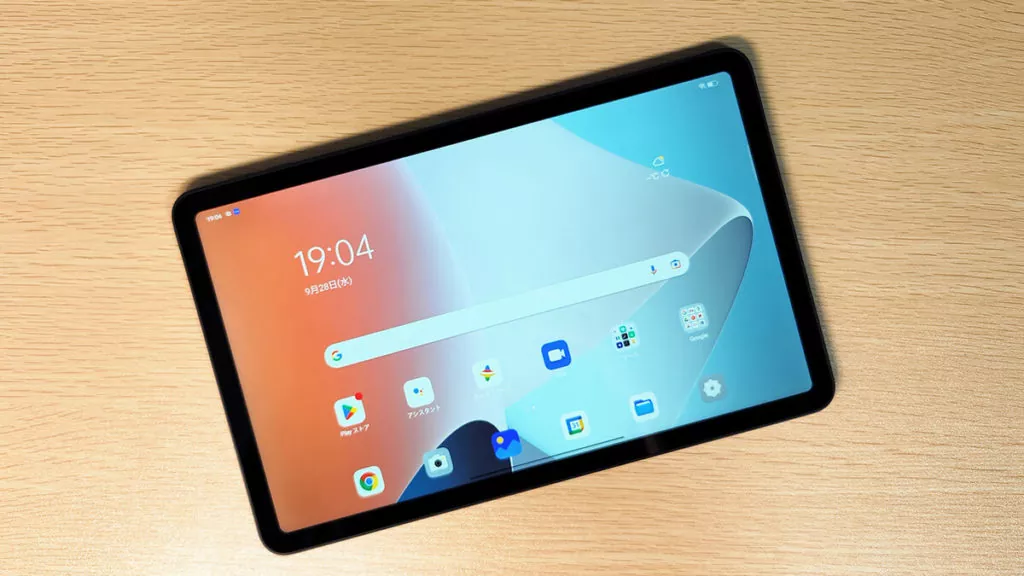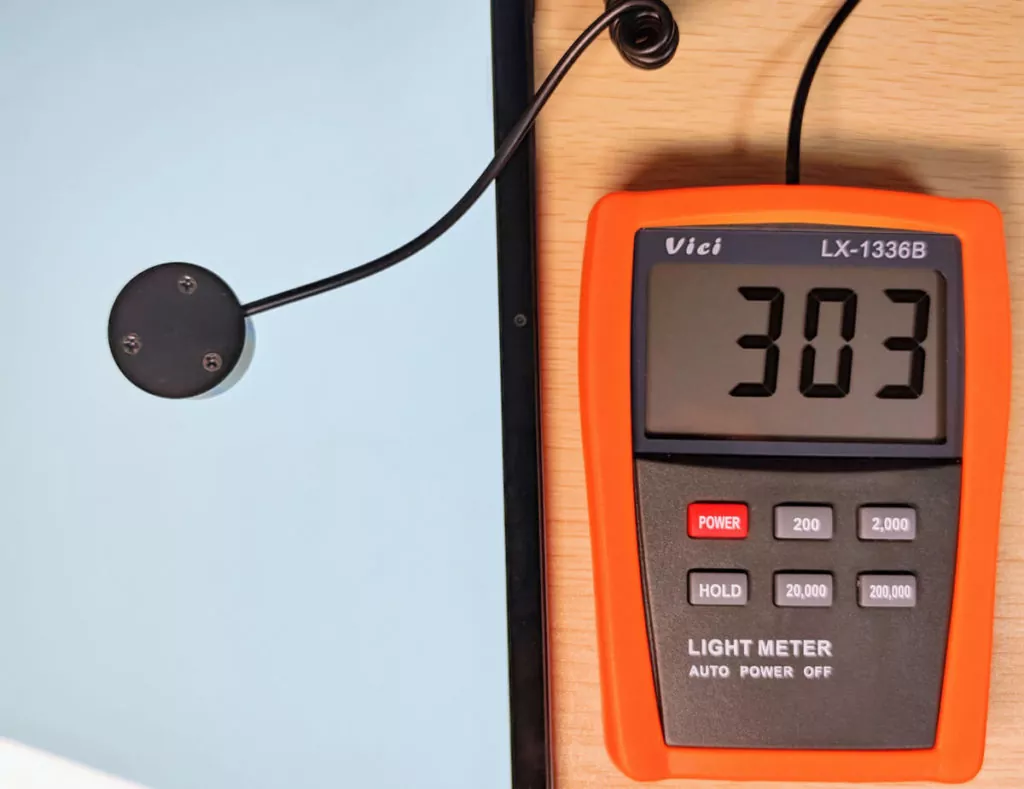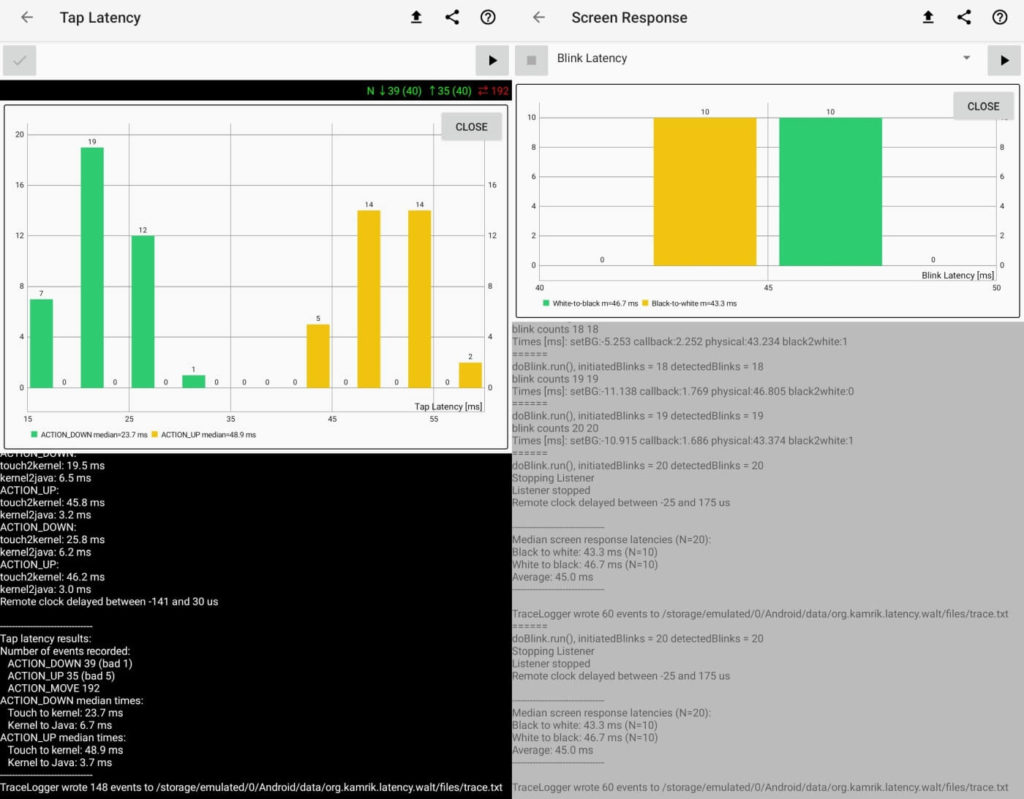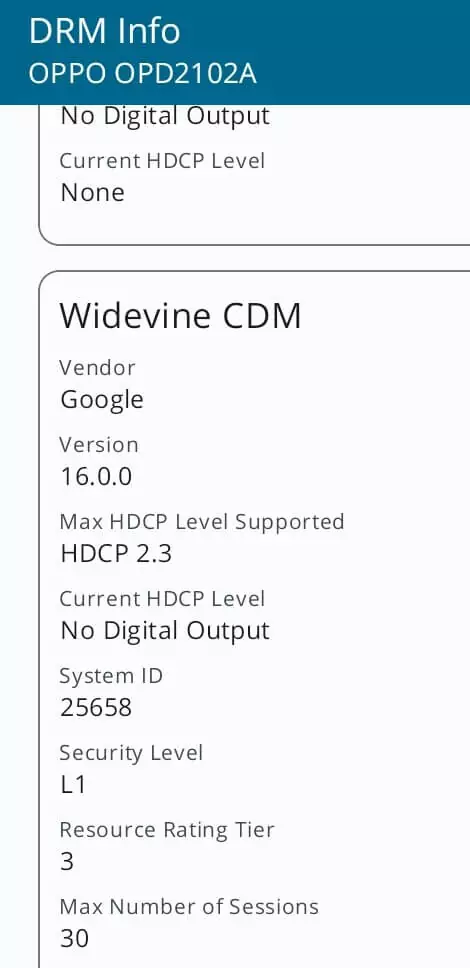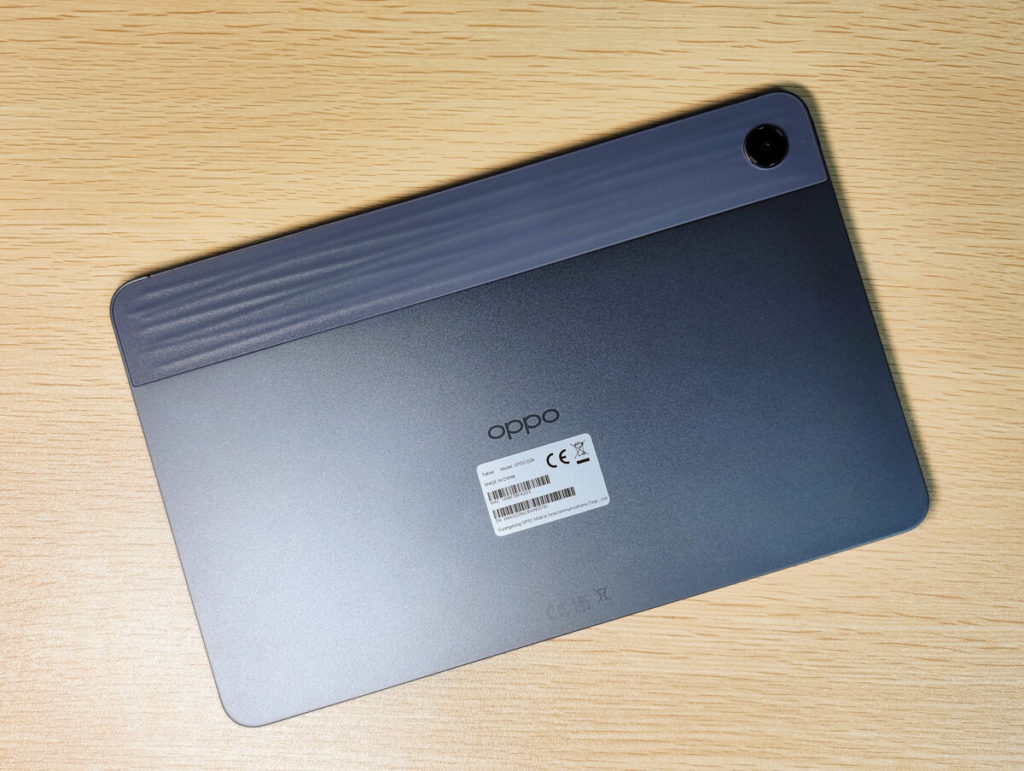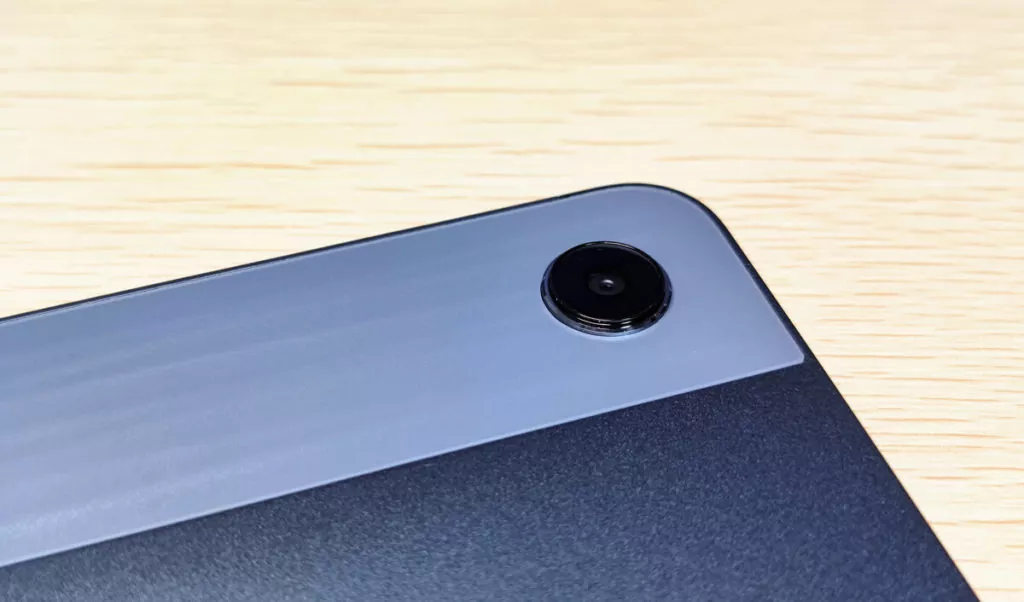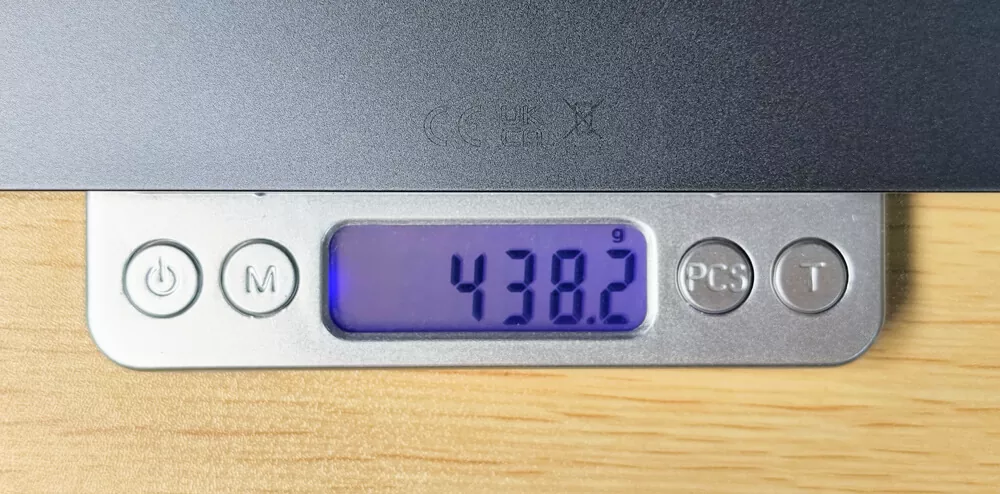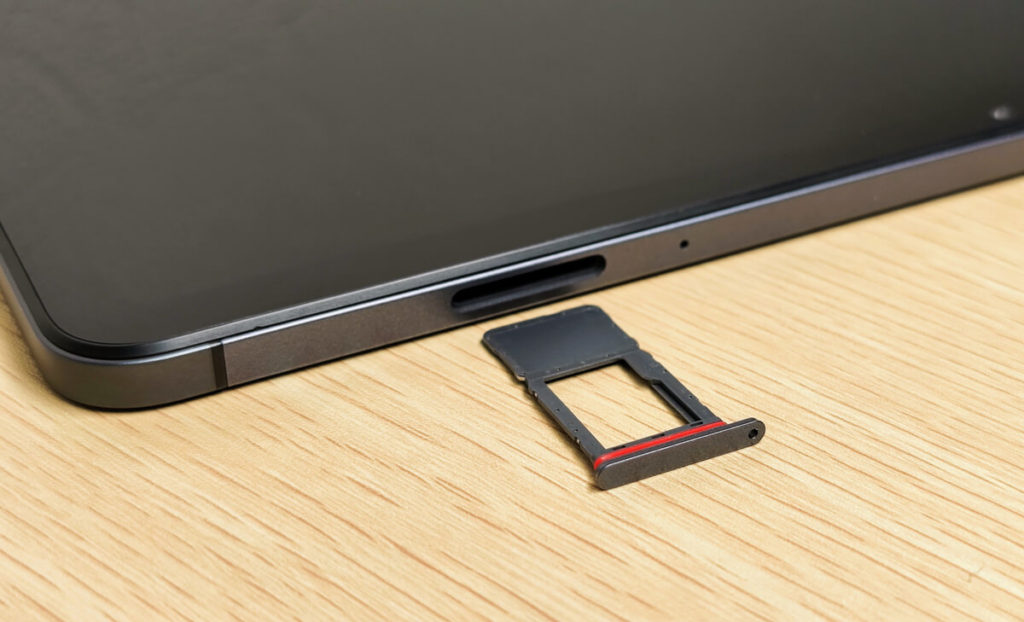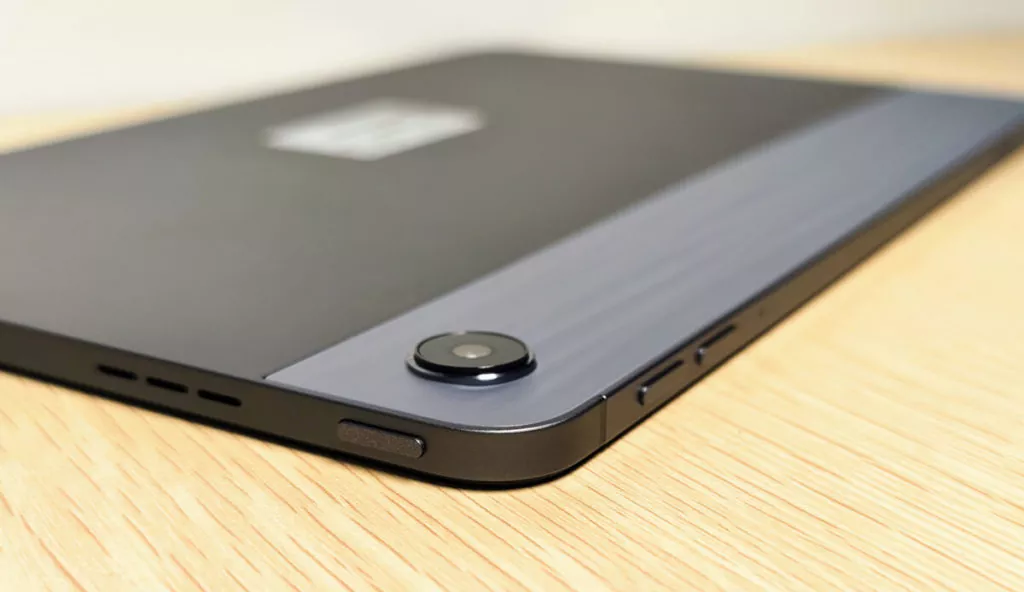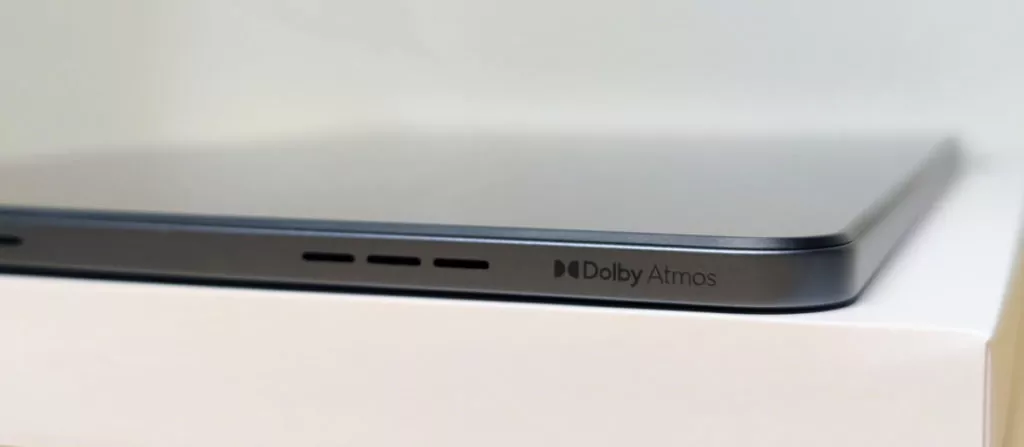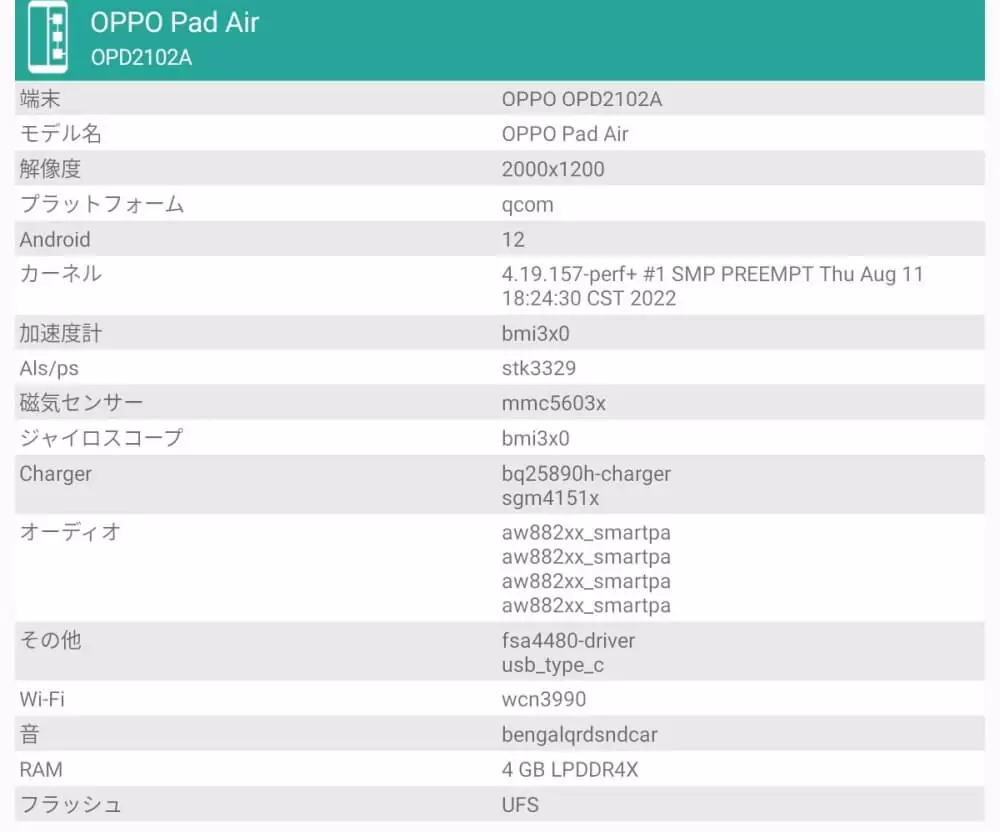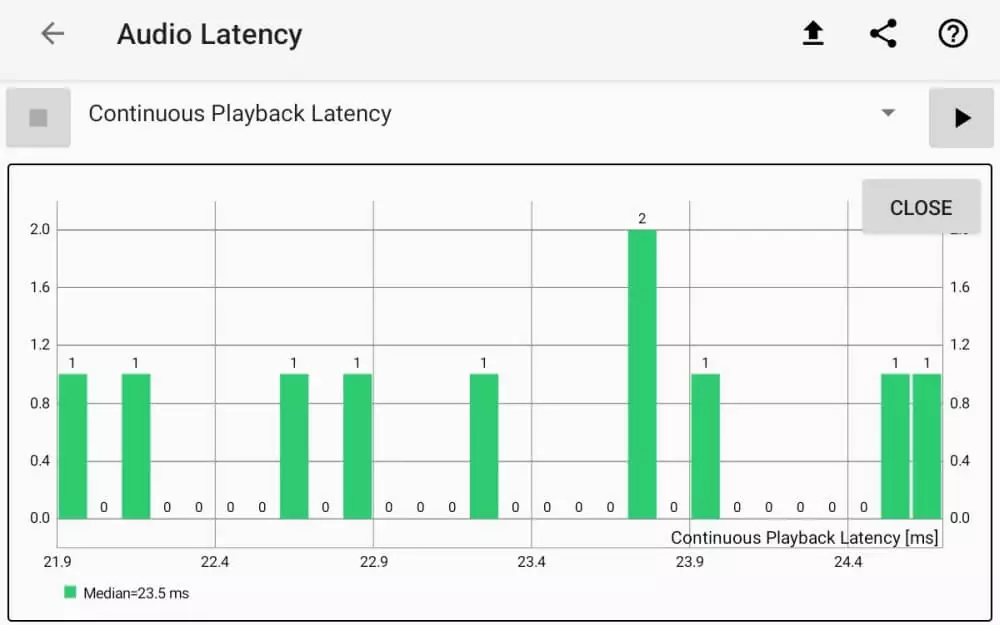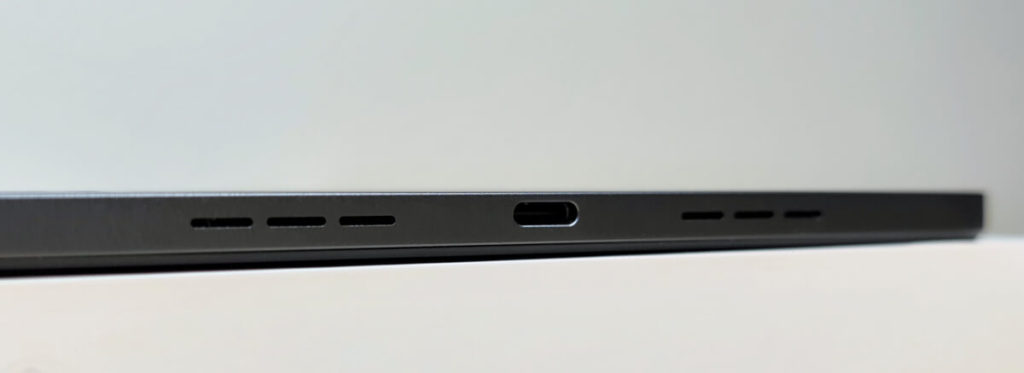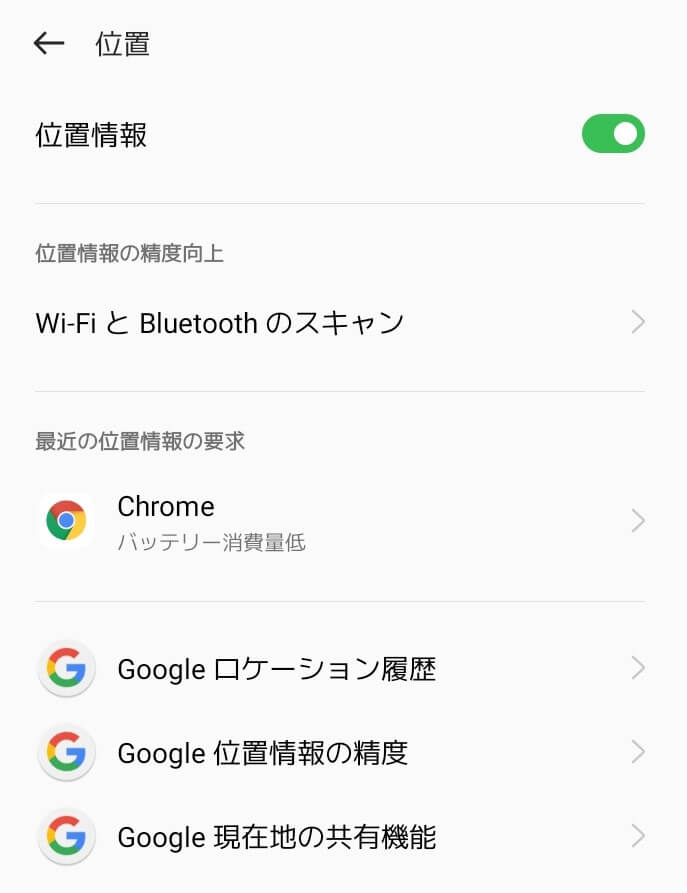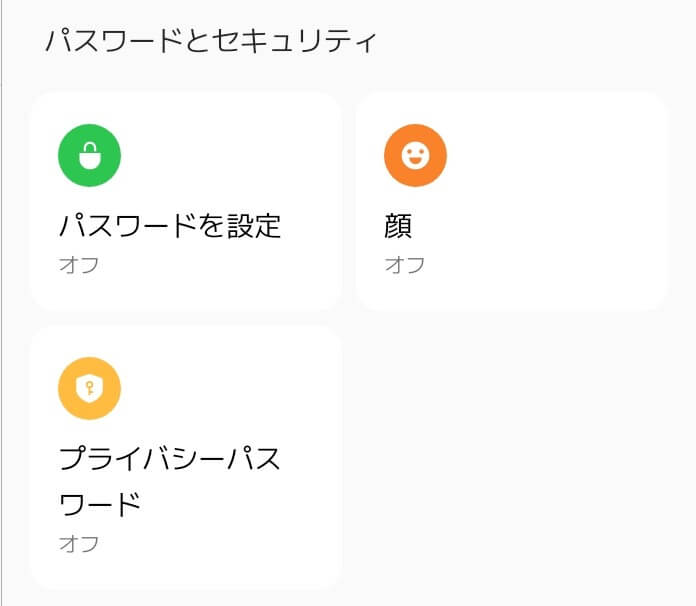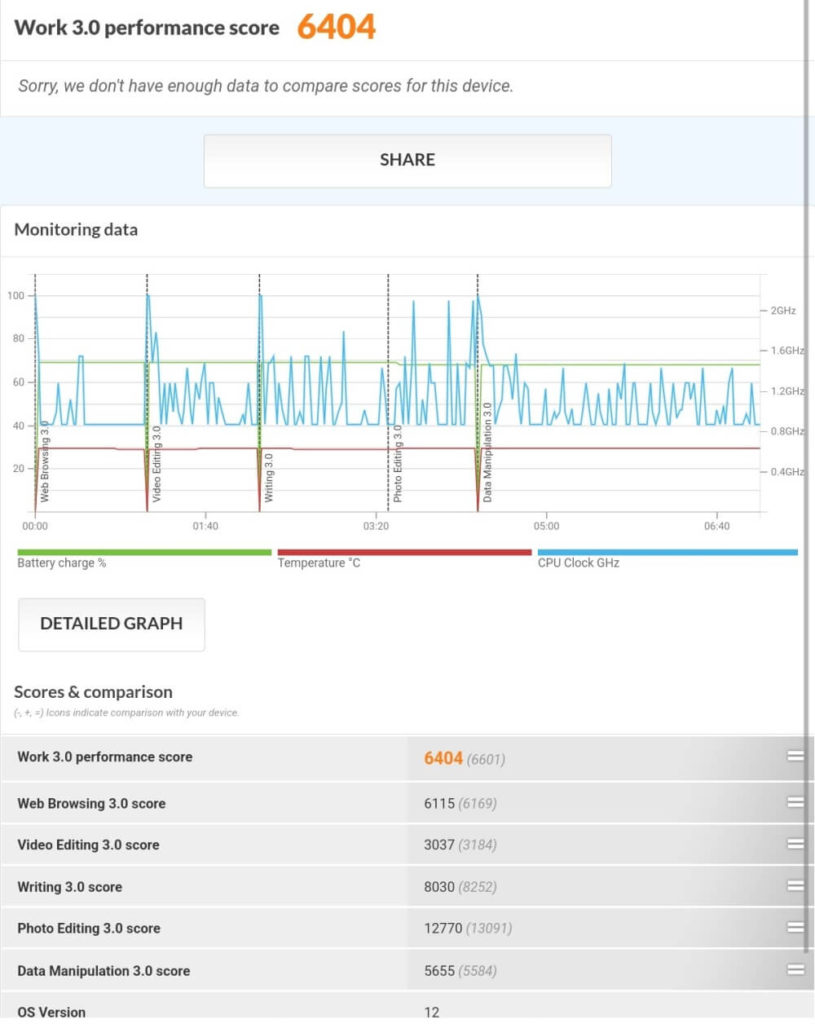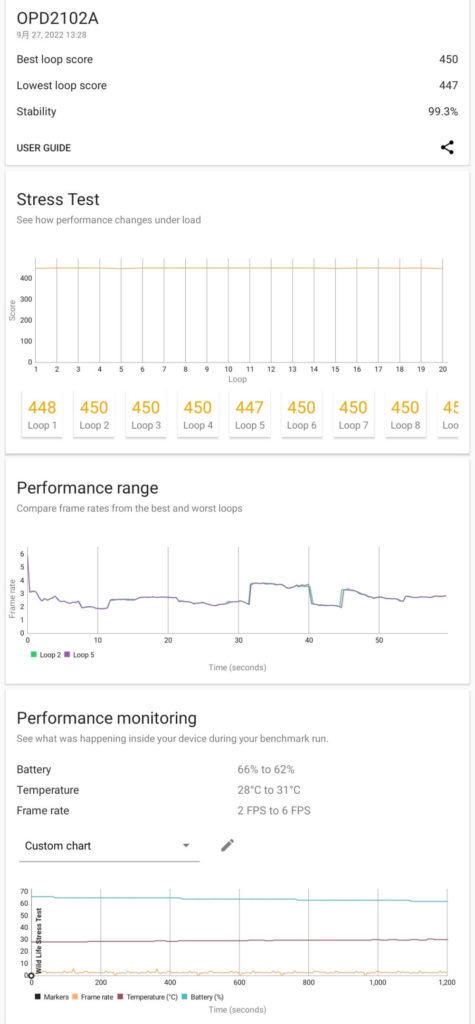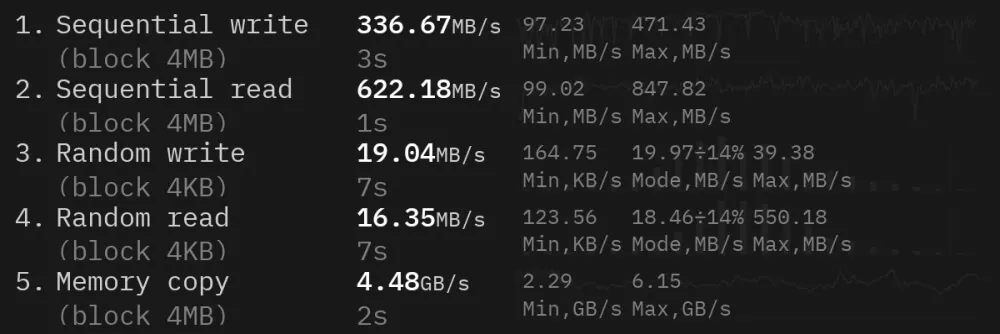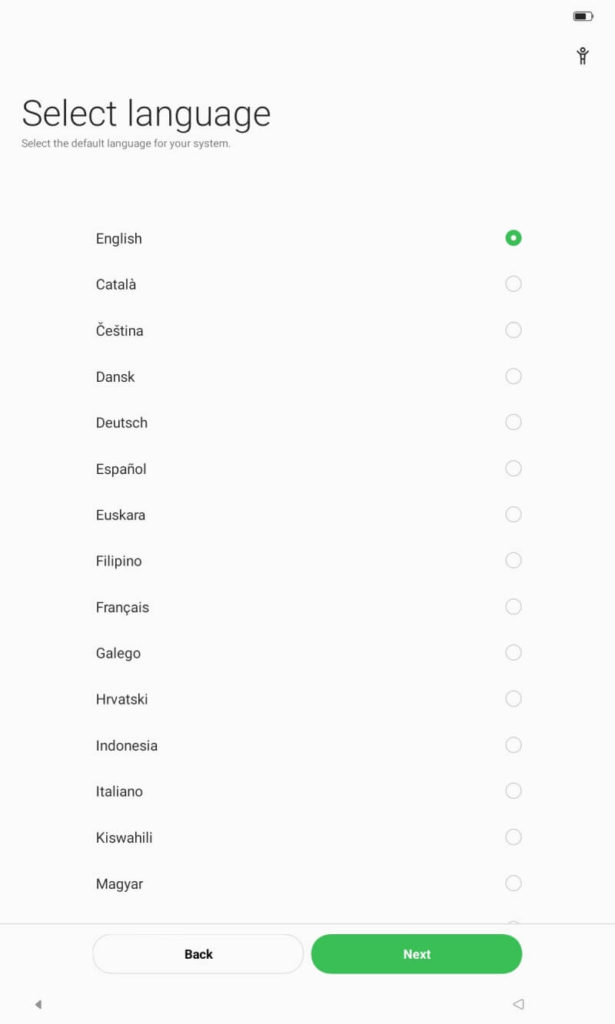OPPO Pad Air (Japan version) was loaned to us.
OPPO Global’s first lightweight tablet
The OPPO Pad Air is powered by a Snapdragon 680, has a fingerprint-resistant back, and weighs in at a light 440g.
The speakers, which are often neglected in mid-range tablets, are quad speakers with Dolby Atmos support.
This review is done with OPD2102A_11_A.14, 4GB+64GB version.
- 10.3″ screen with 2000 x 1200 resolution
- Lightweight with 7100mAh battery
- MicroSD card support
- Quad speakers
- Middle range model but multifunctional
- Low performance and limited applications
- Dark screen
- Large touch delay
- No fingerprint sensor
- No GPS
| OPPO Pad Air OPD2102A | |
|---|---|
| OS | Android 12 |
| RAM | 4GB LPDDR4X |
| Storage | 64GB UFS 2.2 microSD card supported |
| SoC | Qualcomm Snapdragon 680 |
| Display | 10.3inch 2000 x 1200 60Hz LCD |
| Size | 245.1 x 154.8 x 6.9mm |
| Weight | 440g |
| SIM | — |
| Rear Camera | 8MP (Hynix hi846) |
| Front Camera | 5MP (Hynix hi556) |
| Battery | 7,100mAh |
| USB Port | USB Type-C (USB 2.0) |
Index
- 1 OPPO Global’s first lightweight tablet
- 2 Colors are adequate, but screen is a little dark
- 3 Fingerprint-resistant back
- 4 Storage can be added with microSD card
- 5 Dolby Atmos-enabled quad speakers
- 6 7100mAh battery with 18W charging support
- 7 GPS and fingerprint sensor are not included
- 8 Sufficient performance for video playback, etc.
- 9 Feature-rich Android 12-based ColorOS
- 10 Conclusion
It comes in a fairly thin box and the only accessories are a quick guide, safety guide, and SIM pin.
No charger, cable, or stylus pen are included, and no protective film is attached.
Colors are adequate, but screen is a little dark
The OPPO Pad Air has a 10.3″ IPS display with 2000 x 1200 resolution.
The refresh rate is 60 Hz.
The colors are good enough, and the color temperature can be changed as desired in the settings.
When measuring the brightness with the LX-1336B during HDR video playback with automatic brightness adjustment on, it reached a maximum of 303 nits.
Viewing angles did not seem to be very good, and the screen looked darker when viewed from an angle.
It seems difficult to see indoors unless the brightness is set to a level that warns of “high power consumption” in the settings.
The total touch latency measured by the WALT Latency Timer was 75.4ms.
This is about the same large latency as tablets in the $130 range, and is not suitable for gaming in terms of both performance and touch latency.
Widevine L1 allows streaming in HD quality on Amazon Prime Video (beta) and others.
Fingerprint-resistant back
The back of the OPPO Pad Air is mostly metallic, with only the top part having a three-dimensional texture called OPPO Glow.
It does not leave fingerprints easily, so it remains clean even after using it for a while.
The OPPO Glow has a strong plastic feel to it compared to the metallic part, and personally, I got a cheap impression from the OPPO Glow part due to the difference in texture. I think it is a good design accent, though….
The rear camera is a single 8MP camera with minimal protrusion.
It is sufficient for note-taking purposes, although it is prone to white-out and noise.
It weighs 438.2 g.
Storage can be added with microSD card
The OPPO Pad Air has a small internal storage capacity of 64 GB.
If you need more space, you can increase the capacity by inserting a microSD card in the slot on the side.
On the other side of the side with the slot is the volume button, with the power button nearby.
Dolby Atmos-enabled quad speakers
The OPPO Pad Air has quad stereo speakers.
The volume is a bit low and the sound seems light.
Treble is weak and tend to be overpowered by vocals and other sounds.
Dolby Atmos is supported.
It appears to have an Awinic aw882xxx SmartPA.
The audio output delay was 23.5 ms when measured with the WALT Latency Timer.
7100mAh battery with 18W charging support
The OPPO Pad Air has a 7100mAh capacity battery.
It can be charged at 18W and with a USB Type-C to C cable.
The battery is said to provide about 12 hours of video playback, which is sufficient battery life.
GPS and fingerprint sensor are not included
It does not seem to be intended for use as a car navigation system, and does not support GPS location data acquisition.
Although a 4G-compatible version could be released, given the design of the microSD card slot, it was probably decided that there would be no demand for this product.
Unlocking is supported only by face unlock, and there is no fingerprint sensor.
Sufficient performance for video playback, etc.
The Snapdragon 680 that the OPPO Pad Air is equipped with is at a level of performance closer to low-end rather than mid-range.
It is impossible to play games comfortably, and its use is mainly limited to e-book reading, video playback, and website browsing.
In Geekbench 5, the Genshin disguised version had 385 single-core and 1616 multi-core, and the normal version had 385 single-core and 1639 multi-core.
There was no significant change, and it appears that performance is not controlled by the package name determination.
PCMark Work 3.0, which measures performance in everyday use such as document manipulation, gave a score of 6404.
This is the lowest limit where the operation in daily use does not become choppy.
In the 3DMark Wild Life Stress Test, the score was 450, with a temperature increase from 28°C to 31°C (3°C increase) and battery consumption of 4% at 2 to 6 FPS.
Incidentally, the Xiaomi Pad 5, another cost-effective tablet, scored about 7.6 times higher than the OPPO Pad Air.
Storage is UFS 2.2, which is not fast for a mid-range 2022, but it is faster than the Xperia 1, a high-end model from a few generations ago.
Feature-rich Android 12-based ColorOS
The OPPO Pad Air is powered by Android 12-based ColorOS.
Almost all of the ColorOS features are available, so the software is as complete as the high-end models.
Conclusion
- 10.3″ screen with 2000 x 1200 resolution
- Lightweight with 7100mAh battery
- MicroSD card support
- Quad speakers
- Middle range model but multifunctional
- Low performance and limited applications
- Dark screen
- Large touch delay
- No fingerprint sensor
- No GPS
The OPPO Pad Air is good for those who want a 10″ tablet that is as light as possible and who want to display websites, videos, and e-books on a large screen.
If you want to enjoy games on a large screen, you should consider other tablets.
In terms of GPU performance, the Xiaomi Pad 5, which is about 7.6 times more powerful than the OPPO Pad Air, can be bought for a little extra, so it is not a good choice.
The build quality and OS features are a step up from cheap tablets in the $100 range from no-name Chinese manufacturers, and if you have a limited budget and want a reliable quality product, the OPPO Pad Air is a good choice.
